You are here
LGBTQ+ Mental Health
LGBTQ+ Mental Health: Insights from MHA Screening
Lesbian, gay, bisexual, transgender, queer, questioning (LGBTQ) and other sexual minority and gender diverse populations face unique challenges from their non-LGBTQ counterparts. Most LGBTQ individuals are incredibly resilient and will thrive in the face of adversity, with the help of supportive families, communities and peers. However, they are also at particular risk for experiencing shame, fear, discrimination and adverse and traumatic events.
Mental Health America (MHA) recognizes the psychological impact that these experiences have on LGBTQ individuals, placing them at greater risk for several mental health conditions, including depression, anxiety, posttraumatic stress disorder, and suicidality. The overrepresentation of LGBTQ youth in those seeking support from our online mental health resources indicated that this population was in particular need of help. MHA believes that it is imperative to use data to better understand and bring attention to the patterns of mental health disparities in LGBTQ populations, to create and direct appropriate resources to better support those in need.
LGBTQ+ Mental Health: Insights from MHA Screening explores the data from the nearly 300,000 LGBTQ individuals who took a mental health screen from 2017-2019. Through this analysis, we highlight the specific challenges faced by LGBTQ individuals, particularly youth, and provide specific policy and programmatic recommendations to ensure them necessary, appropriate and timely support.
Download The LGBTQ+ Mental Health Report Here
Key Findings
-
Over half of LGBTQ screeners were youth ages 11-17. Eighty-six percent of LGBTQ youth screened positive or moderate to severe for a mental health condition, the highest rate of all age groups of LGBTQ individuals.
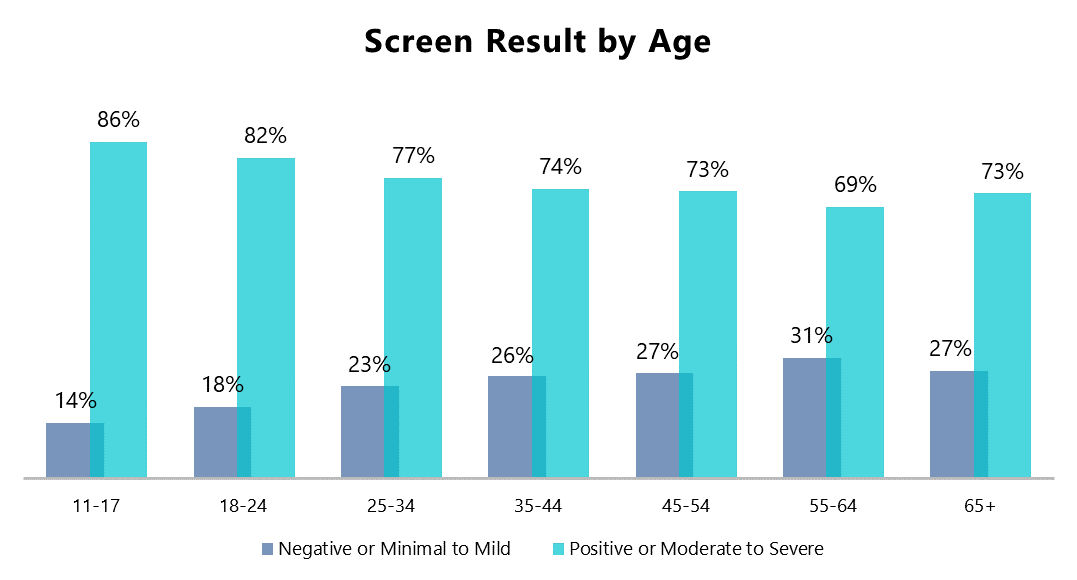
- LGBTQ screeners were most likely to take the Eating Disorder screen (38 percent), highlighting the need for early identification and treatment for disordered eating among LGBTQ youth.
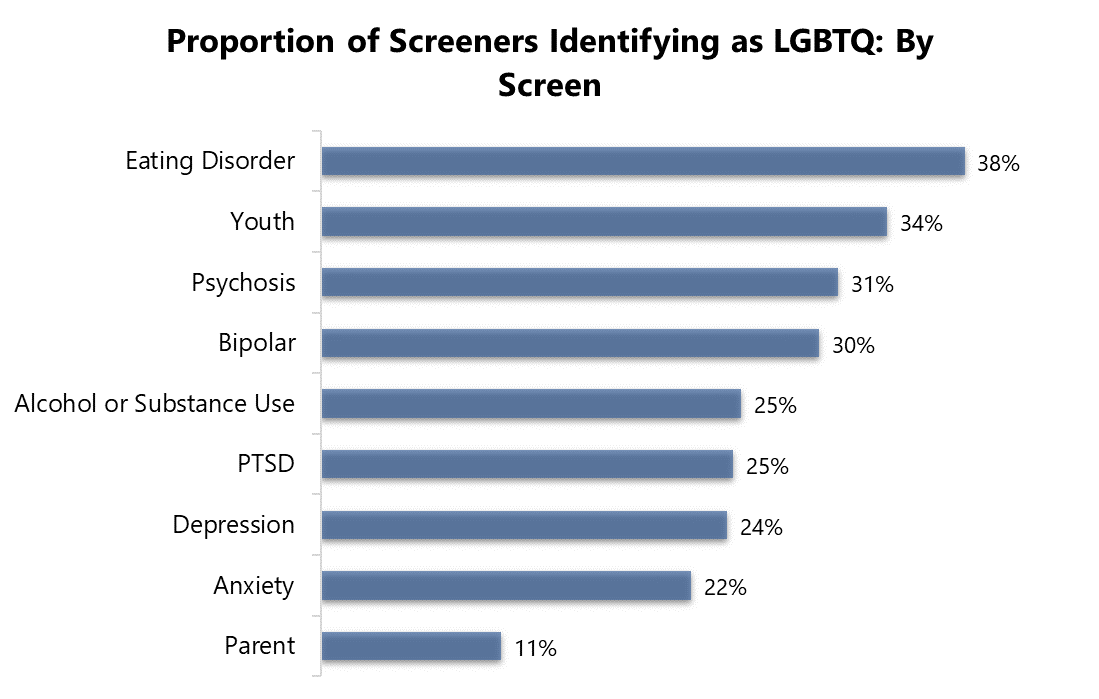
- Screeners who identified as transgender were most likely to screen positive or moderate to severe for a mental health condition (89 percent), and young transgender screeners ages 11-17 were most at risk.
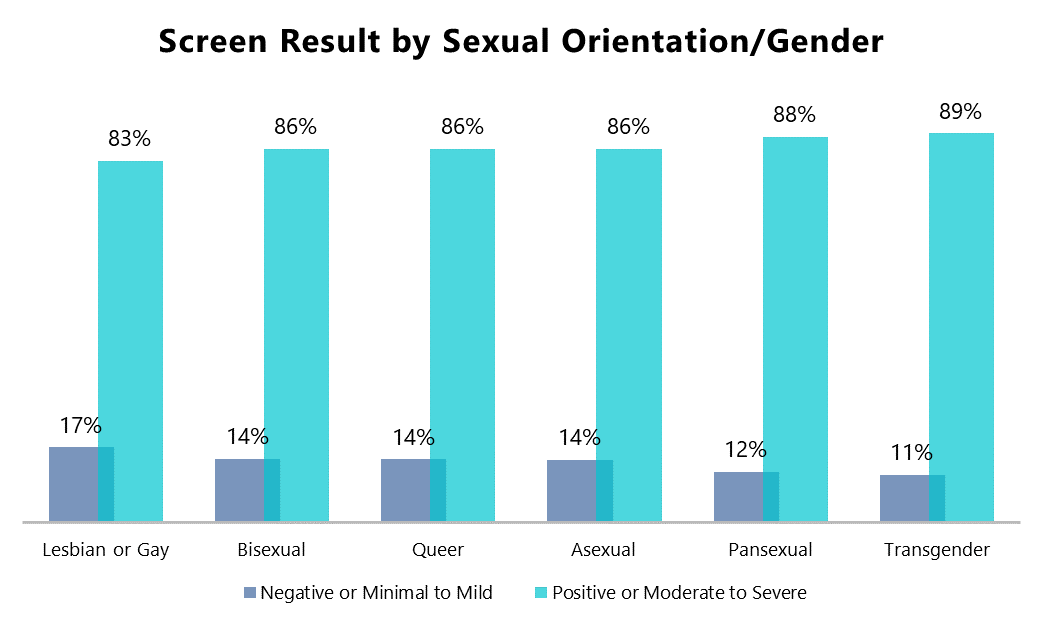
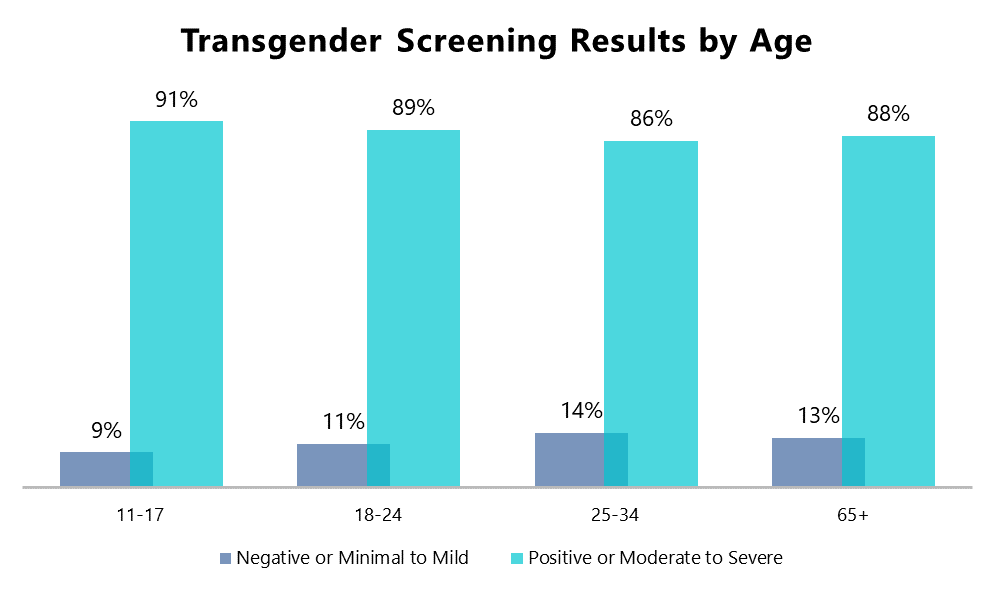
- Half of LGBTQ screeners report significant thoughts of suicide or self-harm, compared to only 33 percent of non-LGBTQ screeners.
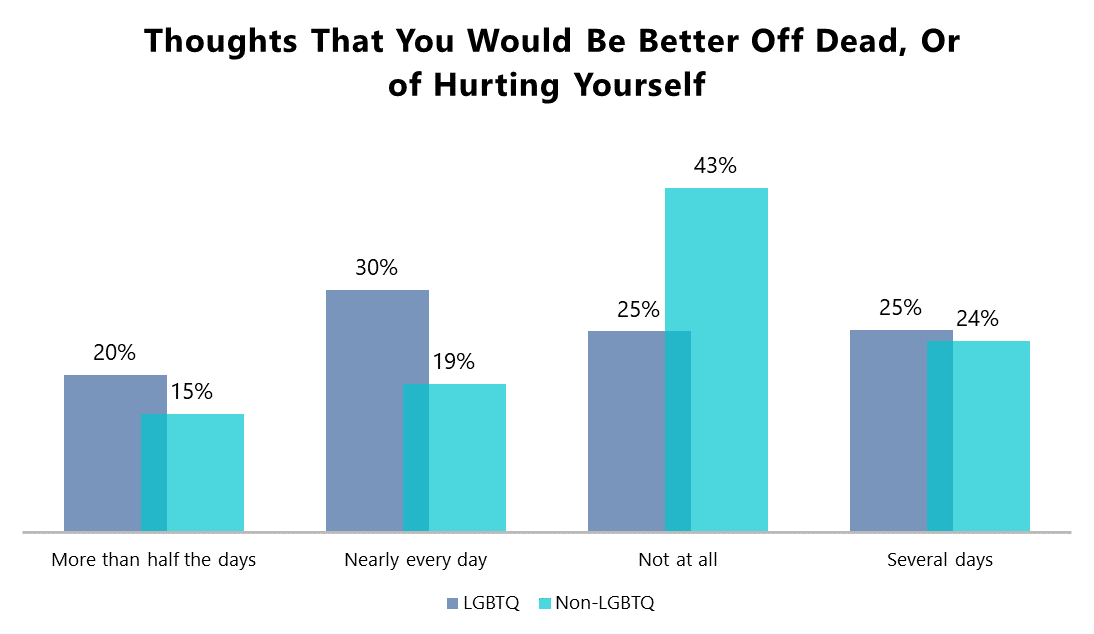
- Despite being more likely to screen positive for a mental health condition, LGBTQ screeners were more likely than their non-LGBTQ counterparts to report that they did not want to take any action after screening (33 percent) and were less liekly to indicate that they wanted to find treatment (17 percent).
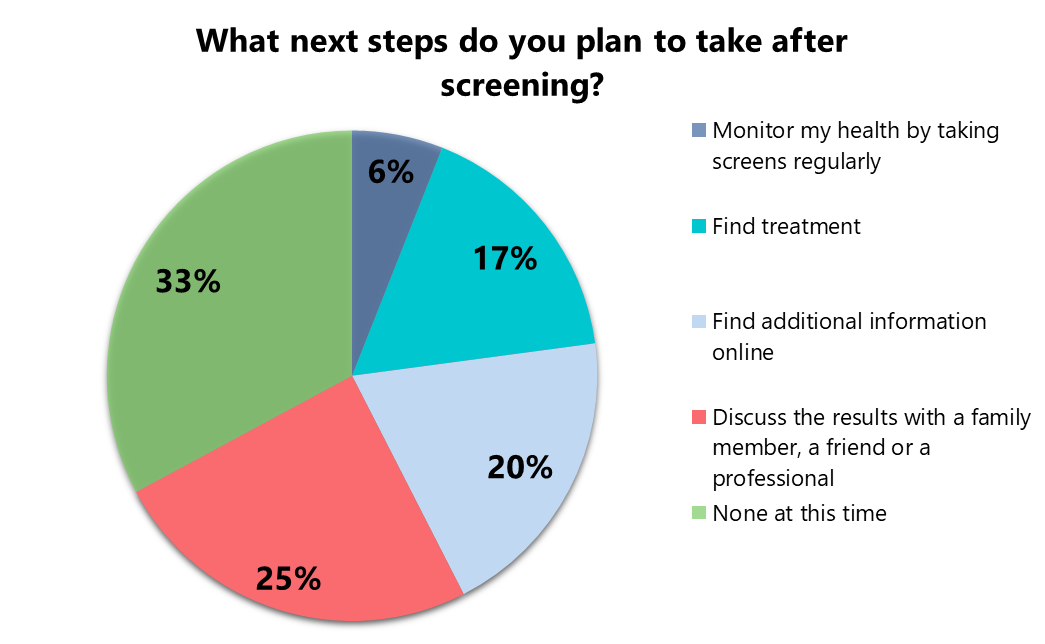
Additional Analysis
The report provides further analysis of the following topics:
- In-depth analysis of intersectionality between race/ethnicity, age, income, sexual orientation and gender identity;
- Comparison of risk across nine mental health conditions between LGBTQ and non-LGBTQ populations; and
- Access to mental health care and treatment needs of LGBTQ individuals.








this page